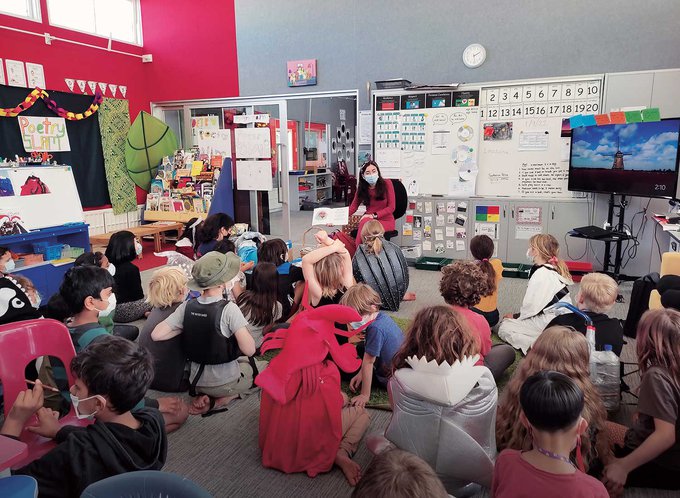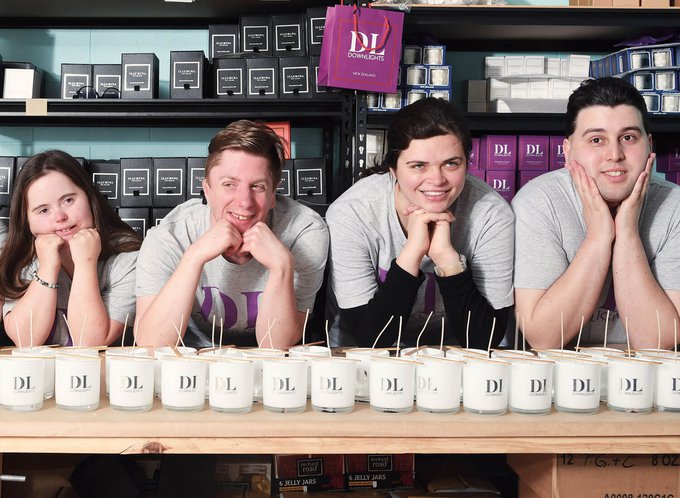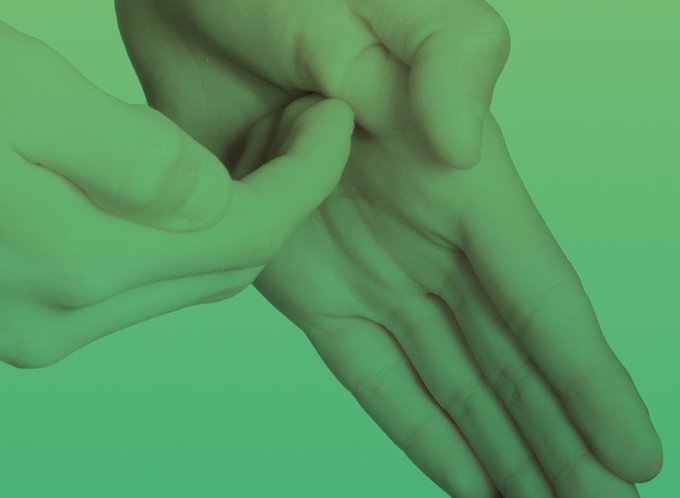When a nervous breakdown ended Dan Mulholland’s career, a favourite childhood toy helped open the door to a rewarding new chapter.
A tough start to a working life
Dan Mulholland had wanted to join the army for as long as he can remember. Like many children of the 1980s, he grew up watching The A-Team and The Dukes of Hazzard, while his room was filled with military collectibles, uniforms and army memorabilia.
At age 17, the moment he became eligible to enlist, Dan grabbed the opportunity. In 1998, he was deployed to Papua New Guinea in the wake of a devastating tsunami that had left thousands of people dead and even more displaced. He recalls the shock of arriving in a lagoon littered with dead bodies and having to immediately swing into action to treat injured survivors.
“For a young medic, I was literally being thrown in the deep end of a pool. I was only one of a handful of people that went down to where the tsunami hit and witnessed the damage first-hand and the death and destruction and all that,” Dan says.
After several years in the army, Dan took on an ambulance paramedic role back home in Wellington but found the stress and anxiety-inducing nature of the job challenging.
“Because I was ex-military, they expected a level of hardness – you weren’t meant to fold under pressure. So you suppress it all, you push it all down. You do your job,” Dan says.
Then in 2018, an unexpected and total nervous breakdown upended Dan’s life for good.
“My son was getting changed out of his school uniform. He’d taken his belt off and draped it around his neck. It was completely innocent but triggered a flashback to a job I’d been to where a guy had hanged himself with his belt.
“I absolutely lost it. I started screaming at my son even though it wasn’t his face I could see – it was the face of the guy that had killed himself. I went out to my bedroom and I just sat there and cried for like an hour,” Dan says.
This was the moment, according to Dan, when his life changed forever.
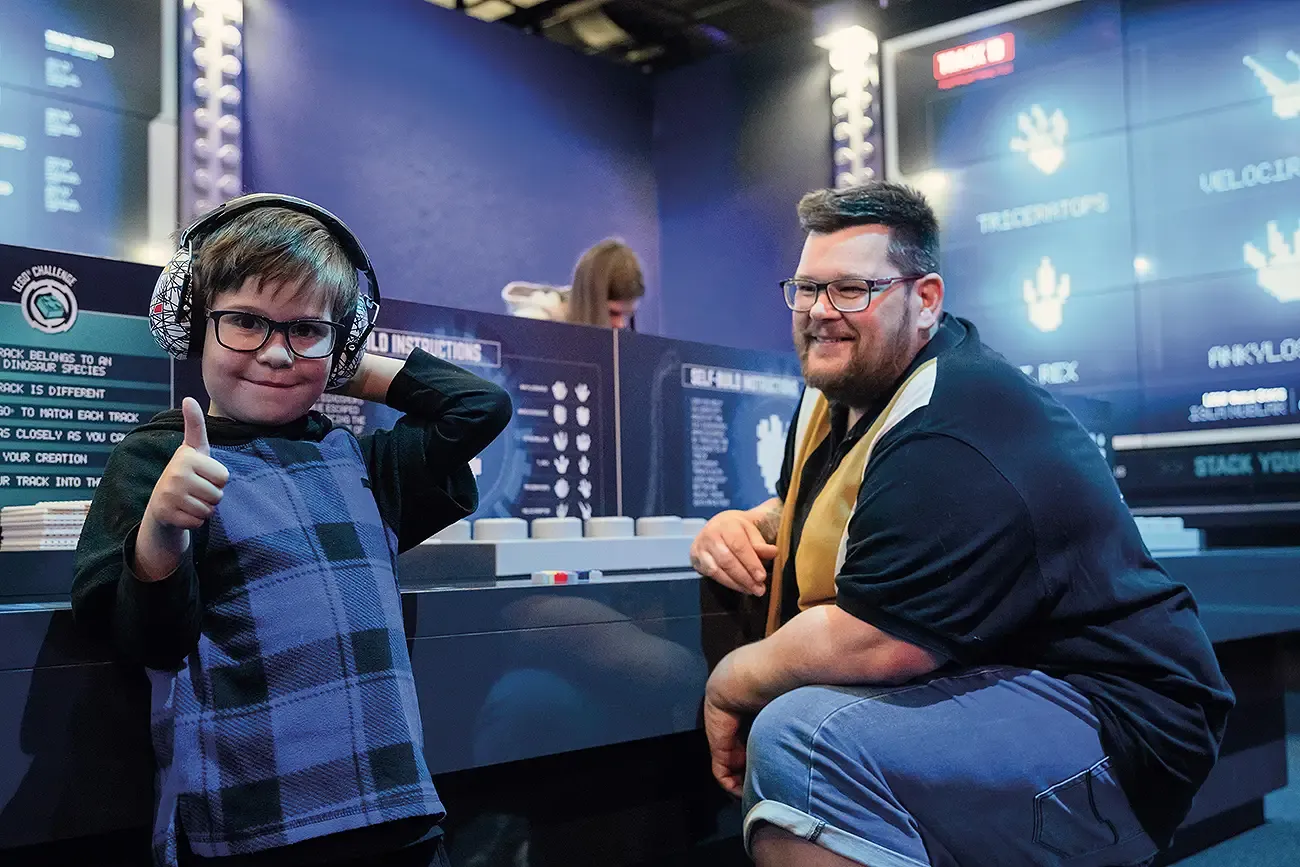
Dan with a young Lego fan at Wellington’s recent Jurassic World Lego exhibition.
“Literally everything I had known just disappeared. My confidence, my sense of self, my sense of value. Everything that had kept me going up to that moment was gone,” he says.
This included his job and income. For 3 months, he didn’t leave his house and had no idea what, if anything, he’d be able to do for work. It wasn’t until a close friend suggested to Dan that he might be dealing with PTSD that the wheels started turning once again.
With the help of Veterans' Affairs, Dan underwent a comprehensive evaluation, meeting with psychologists, psychiatrists, vocational therapists and specialists. After receiving a confirmed diagnosis of PTSD, he started an extensive treatment journey involving almost 2 years of psychotherapy and regular counselling sessions, which he continues to attend today.
Then in 2019, an occupational therapist appointed by Veterans' Affairs to work with Dan posed a question that would ultimately reshape his path to recovery and to a new career.
“I remember them asking me, ‘What things do you love? What things do you love doing?’, and I was like ‘Oh, I love Lego,” Dan says.
Much more than just a toy
Much like his father, Dan’s son grew up playing with Lego, and in 2014, he saw a TV news story about a brick show in Christchurch.
Dan says his son asked him whether there was a brick show nearby they could check out, and he was surprised to learn no one had set one up. Using the power of Facebook, Dan reached out to a handful of local enthusiasts, and within a year, they hosted their first show at St Bernard’s College, attracting an astonishing 7,500 attendees.
“It was absolutely insane. The line outside was so huge that I sent somebody down to The Warehouse to buy big bags of lollies just to hand out along the lines,” Dan says.
This was proof to Dan that Lego could be more than just a toy. Back in the room with his occupational therapist, he says they both had “an epiphany” that Lego was a credible future job option.
He began researching online and stumbled across a practice known as Lego-based therapy, developed specifically to help autistic children improve their communication and interpersonal skills.
With very few people involved in the field and no formal qualifications on offer, he reached out to an occupational therapist specialising in play-based therapy for guidance on how to kick things off in New Zealand.
At the same time, he was selected to be a contestant on the first series of Lego Masters New Zealand, the local version of the wildly popular international reality television show in which teams compete to build the best Lego project.
While it meant having to spend several months away from his family for filming in Auckland, he says his TV stint gave him invaluable exposure within the Lego fan community.
Even today, Dan is regularly stopped at exhibitions and shows by viewers keen to talk to him about Lego as well as his struggle with mental health, which was open about throughout the series.
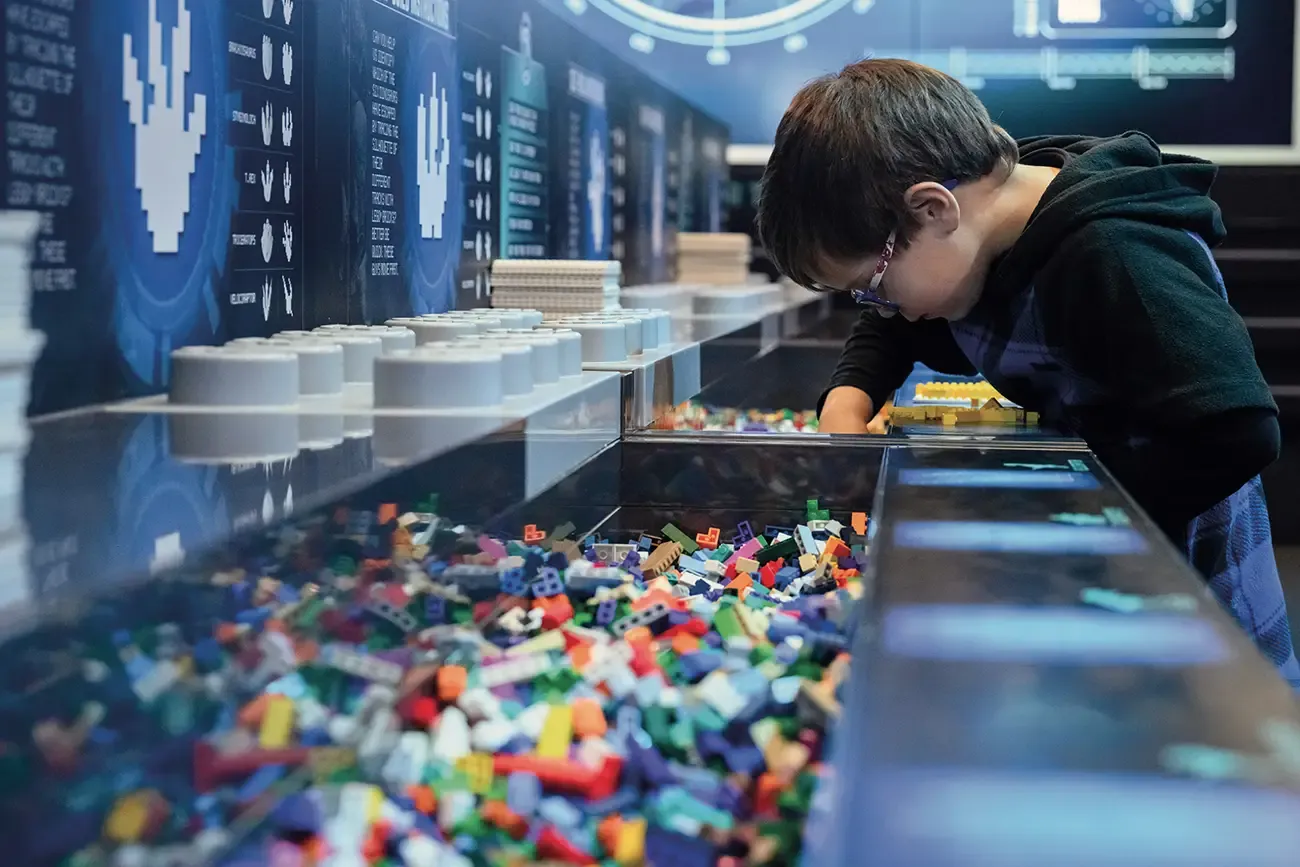
Playing with Lego can boost kids’ problem solving skills, creativity and focus
Rebuilding, brick by brick
As soon as Dan got home to Wellington in March 2022, he pushed forward with his Lego business idea, hiring a space from a local church and posting messages on his local community Facebook page.
The nuts and bolts of Dan’s sessions involve methodical Lego building paired with conversations about life skills, social skills, school or just life in general. Some of the kids in his classes have been diagnosed with ADHD, while others have different needs. He now has a group of around 20 students that he sees on a regular basis and is fielding new enquiries from parents all the time as word of mouth spreads.
Dan is also conscious that many of the young people that stand to benefit most from his sessions come from families who can least afford them. He is now in the process of setting up a charity, the Brick Engaged Foundation, as a sister organisation to his business. He has successfully obtained recognition from the Charities Commission, paving the way to seek funding from various sources to support his work.
Dan is also very open about the benefits he gets from the kids he works with, explaining that they often give him the motivation to get out of bed and off to work.
“Sometimes, I think to myself, ‘I can’t do this today.’ My self-confidence goes and imposter syndrome starts to creep in. But then I remind myself, ‘We might have an amazing conversation today’, and because we’ve had some before, I feel compelled to keep going. They provide me with significant motivation compared to my former careers,” he says.
“What I’ve learned through my own mental health struggles, including my breakdown, is that, if you’re not pursuing your passion, you’re wasting your time. I believe in making the most of the time we have here and now, because once it’s gone, it’s gone. There’s only one life – live it to the fullest.”
Know someone who might enjoy this?
Read this next
-
July 2022
Own your story
-
November 2022
Helping kids find out what they’re made of
-
March 2023
A positive influence
Greater good
See all-
March 2021
Candles for a cause
-
March 2021
Helping Kiwi babies thrive
-
March 2021
Creating a Deaf-inclusive Aotearoa


